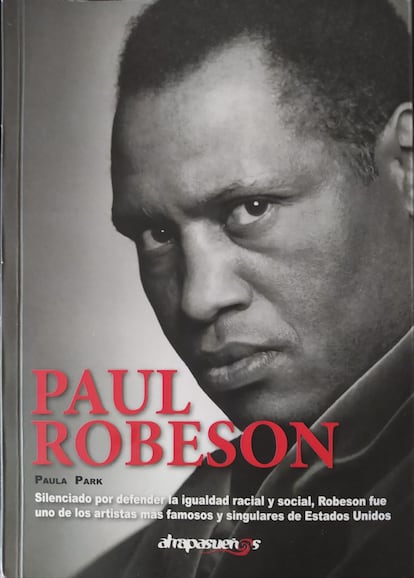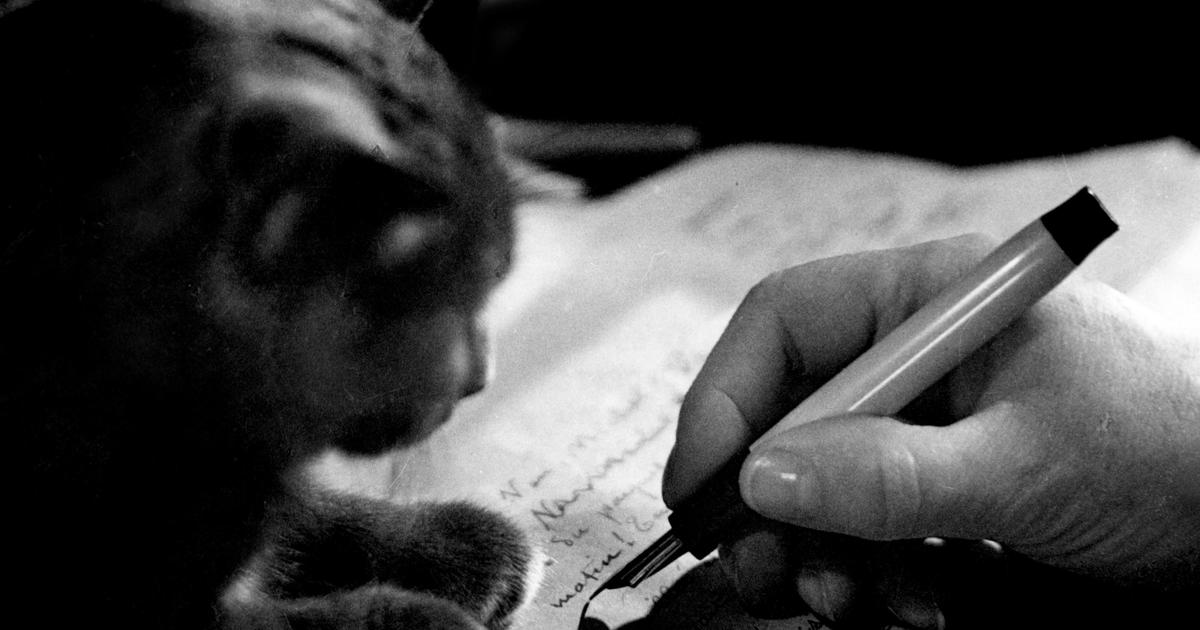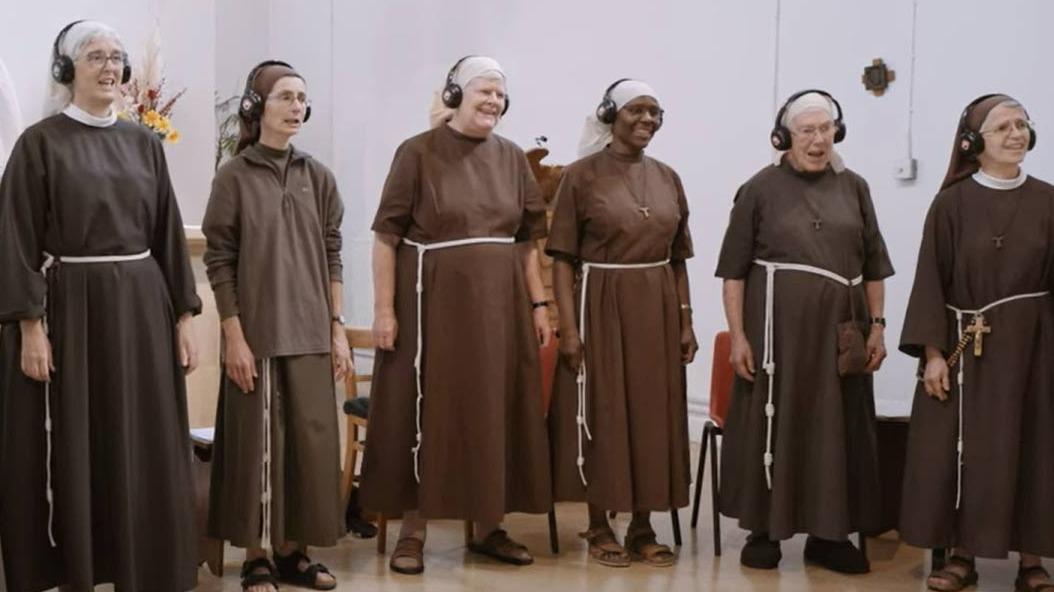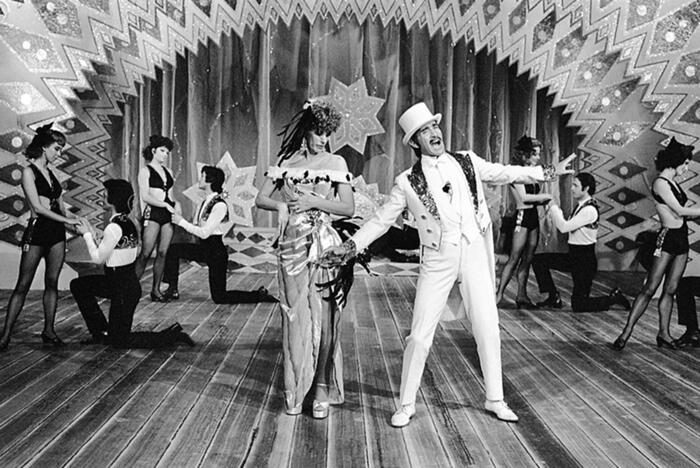Paul Robeson, surrounded by shipyard workers in Oakland, California, performs the US anthem in 1942. Editorial courtesy Dreamcatcher
The following epitaph defines a vital attitude: “The artist has to choose between fighting for freedom or slavery.
I have made my choice.
I had no alternative ”.
This inscription appears on the grave of Paul Robeson (Princeton, New Jersey, 1898-1976), an actor, singer, athlete, lawyer and intellectual - he learned 20 languages and was fluent in 12 - who became in the forties of the last century into one of America's most respected black leaders.
With his political activism he not only denounced racism, but also showed an unwavering adherence to socialism and his criticism of the situation of black and white workers.
In a postwar environment characterized by anti-communist hysteria, McCarthyism singled him out as public enemy number one.
Cover of the book 'Paul Robeson'.
In 1936, the British cultural and political magazine
New Statesman
described Robeson as "one of the most impressive living actors" and, in 1943,
Time
defined him as "probably the most famous living Negro."
But starting in 1949, a curtain of silence brought down his artistic career for two decades.
“Robeson was virtually erased from historical memory.
Disappeared from the media.
It was excluded from all concert halls.
His records disappeared from stores and, surprisingly, his name was removed from the 1917 and 1918 college football team rosters, ”says Raquel Bello-Morales, author of
Paul Robeson.
Artist and revolutionary
(Dreamcatcher) ―signed under the pseudonym Paula Park (in tribute to her biography) -, the first biography in Spanish about this precursor of the civil rights movement in the United States.
Robeson received a law degree - he was the third African American to earn an academic degree from Rutgers (1919), the University of New Jersey, and the third black graduate from Columbia University Law School (1923) - but saw in the prevailing racism an insurmountable obstacle to develop your professional career.
Faced with this impasse, the young lawyer chose to turn his professional life completely around and in 1924 he began his artistic career obtaining a meteoric success.
The artistic successes of the 1930s and 1940s
The projection of his talent was reflected in the theater where he triumphed with
All God's Children Have Wings
and
The Emperor Jones
, both works by Eugene O'Neill, and also with an accomplished
Othello
on Broadway (296 performances and half a million viewers in 1944) and at the Savoy Theater in London.
During the 1930s, he developed his film career participating in
Bosambo
, in the role of a tribal chief, and
The
Proud Valley
, a film about Welsh miners that earned him his greatest personal reward as a performer.
The author of Robeson's biography recovers the words of actor Ossie Davis to explain his charisma: “We learned from him that you were involved just because you were born.
All the young black actors, William Marshall, Sidney Poitier, Harry Belafonte ... were in love with him. "
Peggy Ashcroft, as Desdemona, and Paul Robeson, as Othello, in the Shakespearean production of the Savoy Theater in London in 1930.getty
On the musical level, he recorded numerous albums of black spirituals, the truffled style of biblical phrases and humble melodies that arose from the violence exerted on black slaves so that they would forget their African religion and identity.
Robeson's bass-baritone voice wrapped in a mixture of strength and tenderness is described by Pete Seeger as "deep, so deep and resonant that it seemed to represent all of humanity."
In 1998, now deceased, he received the Grammy Award for Artistic Career, a belated recognition of wonders such as
Ol 'Man River
, included in what was a film and musical
Show Boat
.
A communication that "united the emotional with the political"
It was precisely hearing this song that led Raquel Bello-Morales, who develops her professional work as a virologist at the Autonomous University of Madrid, to become interested in the figure of Paul Robeson.
“I discovered that there is nothing about him in Spanish and what surprised me the most was his magnetism, courage and honesty.
I fell in love with the character ”, says the author.
Robeson's biography is the result of more than two years managing the secondary sources that exist on the artist, research in declassified archives and the written press of the time.
"Something that distinguishes Robeson from other activists," continues Bello-Morales, "is that when he attended a conference in a union, for example, he spoke and also sang.
The communication he achieved with people was much more powerful because he united the emotional with the political ”.
From 1927 to 1939, the artist settled in the United Kingdom, where he discovered his interest in socialism and his sympathy for the British trade union movement, especially among the Welsh miners.
"It is in these years when Robeson becomes deeply politicized and forges his political conscience," says Bello-Morales, and when he ends his relationship with the great American film production companies.
According to Robeson himself, these "insist on presenting a caricatured image of blacks, a ridiculous image, which amuses the white bourgeoisie, and I am not interested in playing their game."
"The adoption of socialism would gradually lead to a profound change", continues Bello-Morales in her book, a change that, according to the author, "moved away from the defense of black values to get closer to the defense of the human values".
His conclusion was that to defeat racism "an alliance of blacks and whites was necessary."
From left: Henry Wallace, Vice President in the Franklin Delano Roosevelt Administration and Progressive Party candidate, Albert Einstein, Lewis L. Wallace, and Paul Robeson, 1947 Dreamcatcher Publishing
Robeson led initiatives such as a bill for the lynchings of blacks, which were the most violent expression of a white supremacism that always went unpunished and that the state and the ruling classes had normalized, be considered federal crimes.
The proposal was presented to President Truman in 1946, who rejected it on the grounds that it was "not the right time."
This defense of global human values led him to claim with his presence the rights of workers in multiple countries as well as to support decolonization movements.
All this activity placed him under the scrutiny of the FBI at the beginning of the Cold War.
Paul Robeson, in Moscow in 1959 Dreamcatcher Publishing House
The energy of his struggle seemed to have no limits, but the position that generated the most problems for the artist was his admiration for the USSR.
“When walking through the streets of Moscow, he did not consider himself a black, he saw himself as a human being due to the absence of racism and he witnessed the great cultural and economic advance that the Soviet revolution experienced by the peoples and ethnic minorities of Central Asia. like the Yakuts and the Kyrgyz ”, explains Bello-Morales.
Sympathy for the Soviet Union and his commitment to his friends in the Communist Party of the United States - although he was never affiliated with any party - destroyed his career.
In 1951, the State Department withdrew his passport and in 1956 he was forced to testify before the Committee on Un-American Activities.
He neither betrayed any other activists nor condemned the USSR and communism.
Those who questioned him and questioned his patriotism and love for what he called "the real America" were unaware that he had already made his choice and had no alternative.
THE SUFFERING OF SPAIN, A FUNDAMENTAL TURNING POINT
In a memorable speech delivered at the Royal Albert Hall in June 1937 to help Spanish refugee children from the Civil War, Paul Robeson declared "his unwavering support for the Government of Spain, legally elected by his legitimate sons and daughters."
One of the signs of this support was his trip in January 1938, which allowed him to visit cities in Catalonia, Levante and Madrid.
"When he goes to Spain he finds himself in a difficult moment of his life, he feels disappointed in his work as a film actor with the great American companies. He witnesses the fight of the Spanish people against fascism and deduces that the artist must put his talent at the service of human values ", affirms Raquel Bello," that is why he said that Spain was a fundamental turning point for him ".
Robeson met in Madrid with his compatriots from the Lincoln Brigade, was able to meet the black American volunteers and was keenly interested in the figure of Oliver Law, the first black commander with white soldiers under his command, who died in the battle of Brunete.
In the trenches of the University City he sang for the soldiers and the officers called for a ceasefire so that his beautiful voice could be heard on both sides of the front.
In the image the artist is seen singing in Madrid with other members of the Lincoln Brigade.
Robeson left in awe because he never saw "a more courageous people, working harder for victory."
Upon returning from his trip, the artist did not stop offering his help to the cause of the Republic until the end.
In an act to raise funds, he showed with his clairvoyance what was looming on the horizon: "We are not doing enough. It does not hurt us enough. If we allow republican Spain to suffer, we will one day suffer in the same way."















/cloudfront-eu-central-1.images.arcpublishing.com/prisa/IGZ7GOCXZ5GUPAQ2HWGK6Z76BU.jpg)